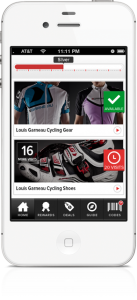Showroomers are often considered as “the enemy” but latest business trends show that worrying about them is unnecessary. Showrooming is a purchasing pattern in which consumers visit stores to check out a product and then go online to track it down elsewhere at the lowest price. For example, companies like Best Buy are losing out on customers to Amazon because of this shopping practice. It is safe to say that the number of smartphone users is huge and constantly growing. The capabilities and features of smartphones play a majore role in increasing showrooming.
“On showroomers, a study found that 48 percent use the store to research products with no plans of making a purchase. About a quarter plan on making a purchase inside the store but get “turned off” by prices, lack of sales help, etc. and wind up making the purchase later online. A third use mobile devices to search prices and find product information in-store. On the positive side, 58 percent visit online communities more than once a day and over half write a positive review. They’re also typically young, 18 to 34; typically male; affluent; and global, with the largest percent of showroomers in India, China and Japan.” – excerpt from RetailWire.
 Experts are suggesting that instead of dreading this segment of shoppers, they should be targeted instead. Many businesses are trying to find ways to convert showroomers into paying customers. Recently, the upscale consignment sneaker store Fight Club McPheters launched Swarm Mobile. It offers customers an app that pops up on their smartphones using Wi-Fi/3G as soon as they walk into a participating store. If customers click “yes,” a store-branded web app opens, and the retailer can track their web use and see what sites they’re visiting to check out price comparisons. Swarm can also be utilized to attract customers with on-the-spot deals and incentives, such as a free sweater with a purchase of $abc or more. By automatically loading all of Flight Club’s deals into the app, customers have valuable information they need at their fingertips, freeing up the sales staff for more personalized service. Fight Club seems to have increased their revenues with the implementation of this app so other businesses should tap into this potential. What do you think the limitations of/concerns/issues with this technology could be?
Experts are suggesting that instead of dreading this segment of shoppers, they should be targeted instead. Many businesses are trying to find ways to convert showroomers into paying customers. Recently, the upscale consignment sneaker store Fight Club McPheters launched Swarm Mobile. It offers customers an app that pops up on their smartphones using Wi-Fi/3G as soon as they walk into a participating store. If customers click “yes,” a store-branded web app opens, and the retailer can track their web use and see what sites they’re visiting to check out price comparisons. Swarm can also be utilized to attract customers with on-the-spot deals and incentives, such as a free sweater with a purchase of $abc or more. By automatically loading all of Flight Club’s deals into the app, customers have valuable information they need at their fingertips, freeing up the sales staff for more personalized service. Fight Club seems to have increased their revenues with the implementation of this app so other businesses should tap into this potential. What do you think the limitations of/concerns/issues with this technology could be?

